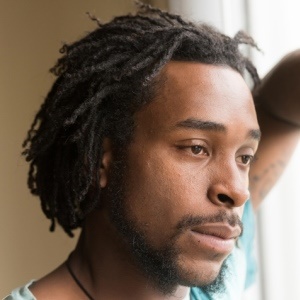
Cases of depression have ballooned almost 20% in a decade, making the debilitating disorder linked to suicide the leading cause of disability worldwide, according to the World Health Organization (WHO).
By 2015, the number of people globally living with depression, according to a revised definition, had reached 322 million, up 18.4% since 2005, the UN agency said.
New figures a wake-up call
"These new figures are a wake-up call for all countries to rethink their approaches to mental health and to treat it with the urgency that it deserves," WHO chief Margaret Chan said in a statement.
In South Africa, like in many other developing countries, mental health doesn’t feature as a public health priority, and in rural communities mental health is not supported at all.
According to the WHO's definition, depression is more than just a bout of the blues.
It is a "persistent sadness and a loss of interest in activities that people normally enjoy, accompanied by an inability to carry out daily activities for two weeks or more".
Lack of energy, shifts in appetite or sleep patterns, substance abuse, anxiety, feelings of worthlessness and thoughts of self-harm or suicide are also common, and can wreak havoc on entire families.
The drop in productivity, and other medical conditions often linked to depression, also takes a financial toll, with the global cost estimated at $1 trillion (about R13 trillion) annually, the WHO said.
Treating mental health
Shekhar Saxena, head of the agency's mental health and substance abuse department, said Thursday that both psycho-social and medical treatments could be highly effective, insisting on the importance of reaching more of those in need.
Even in the most developed countries, around half of people suffering from depression are not diagnosed or treated, and the percentage soars to between 80 and 90% in less developed nations.
Treatment can be difficult to access, while a fear of stigma also prevents many people from seeking the help required to live healthy and productive lives, the agency said.
According to the WHO, every dollar invested in improving access to treatment leads to a return of $4 (about R52) in better health and productivity.
And "early identification and treatment of depression is a very effective means of decreasing death by suicide," Saxena told reporters.
About 800 000 people commit suicide worldwide every year, amounting to one suicide every four seconds.
And the link to depression is clear.
Saxena pointed to studies showing that 70 to 80% of people who commit suicide in high-income countries, and around half of those who kill themselves in low-income countries, suffer from mental disorders, of which depression is the most common.
Mental healthcare in SA
It is a frightening fact that around a fifth (20%) of all South Africans will experience a depressive disorder at least once during their lifetime and the incidence of suicide in South Africa has soared to 23 a day, according to the South African Depression and Anxiety Group (SADAG).
Depression is fortunately a highly treatable condition and the vast majority (between 80 and 90%) of people have a good response and experience relief from their symptoms.
SADAG contact numbers for patient support:
- To find a Support Group in your area - 0800 21 22 23
- Suicide Crisis Line - 0800 567 567
- SADAG Mental Health Line - 011 234 4837
Read More:
SEE: 7 celebs suffering from depression
Blood test could distinguish early depression from schizophrenia
Yoga may ease symptoms of depression




 Publications
Publications
 Partners
Partners















